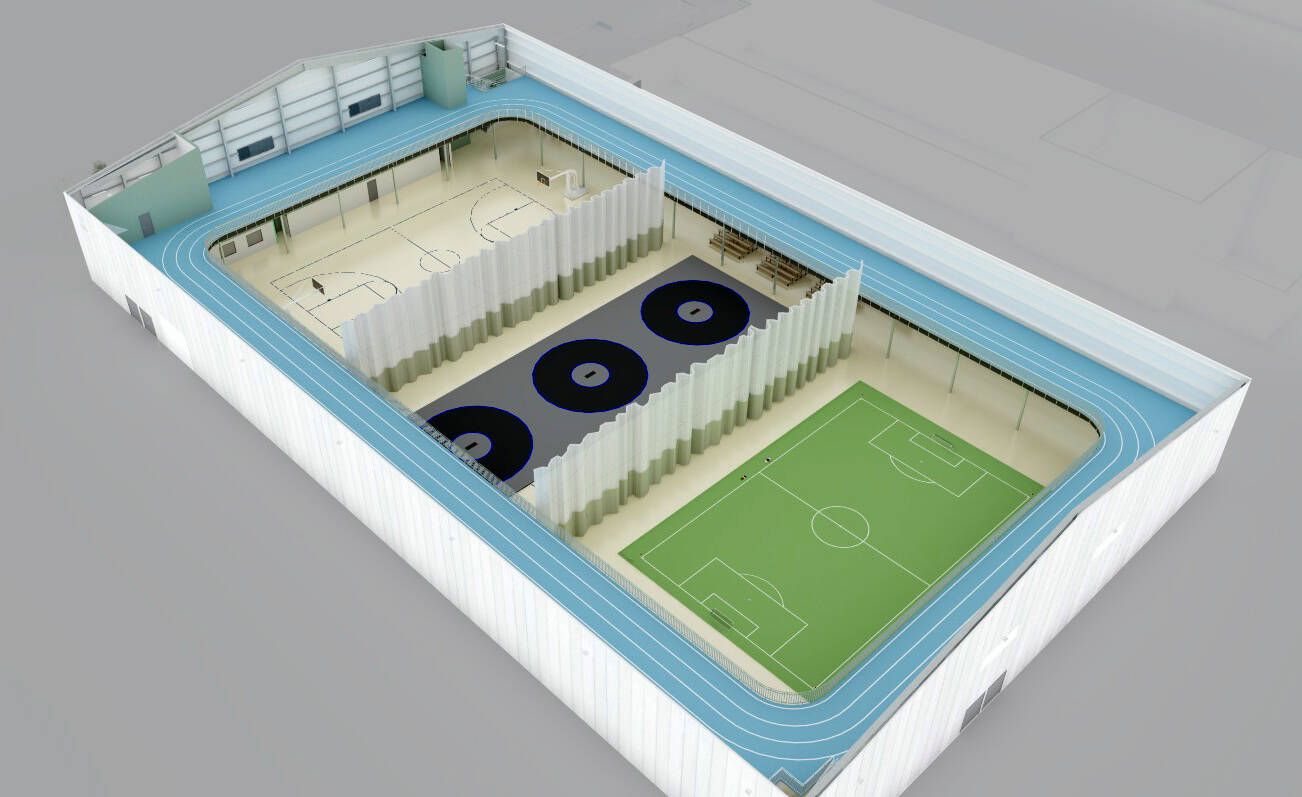Soldotna City Council members Wednesday got their first look at the lineup of capital projects the city expects to fund in the upcoming fiscal year, with funding the Soldotna Field House a top priority.
A draft Five-Year Capital Improvement Plan presented to the city council describes about $105,000 worth of projects to be funded with the city’s general fund and $3.6 million worth of projects from the city’s utility fund for the upcoming fiscal year. Such a planning document is approved annually and is adjusted as projects are funded and completed.
Soldotna Public Works Director Kyle Kornelis told Soldotna City Council members during a Wednesday work session that the city typically adopts a capital budget at the beginning of a fiscal year as a way to maximize the summer construction season. This year, Kornelis said they will introduce legislation in July, as there is not a lot of construction currently underway in the city.
Kornelis described the city’s Capital Improvement Plan as a “long range planning document” that identifies what resources the city has to put toward its capital priorities for the next five fiscal years.
“When we adopt this five-year (Capital Improvement Plan), the expectation is that administration will bring back a capital budget that is consistent with what you see in the upcoming fiscal year,” Kornelis said.
A capital project refers to a one-time expenditure that usually costs more than $30,000. Kornelis said the city sometimes includes in its capital improvement plan projects with smaller price tags, such as Soldotna’s storefront improvement program, because those unused funds roll over from year to year.
Projects in the plan for the upcoming fiscal year to be paid for with the city’s general fund include $50,000 for the replacement of body cameras used by the Soldotna Police Department, $30,000 for an evaluation and recommendation of how to phase out the current refrigerant used at the Soldotna Regional Sports Complex and $10,000 in supplemental funding for the Soldotna Riverfront Redevelopment project.
Upcoming for Soldotna’s utility fund is more than $3 million in upgrades to the city’s wastewater treatment plant.
Not every project listed on the capital plan will necessarily be funded entirely by the city. Kornelis said the city is always pursuing grant opportunities to help offset city costs, as in the case of the police body cameras.
Soldotna was a leading municipality in Alaska with the technology, Kornelis said, but the equipment is now aging. Soldotna Police Chief Gene Meek, he said, has already applied for a grant to pay for the upgrades, and has a different grant program on the back burner in case the first grant falls through.
Included in last year’s capital improvement plan to be funded for the upcoming fiscal year was $3 million for the Soldotna Field House. City voters during the most recent municipal election gave the city permission to incur up to $15 million in debt to help pay for the project which, when constructed, will offer an indoor recreation space adjacent to the Soldotna Regional Sports Complex.
Kornelis reported to council members earlier this month that the price estimate for that project had jumped by about $10 million from the estimate provided last year, requiring the city to find new sources of funding.
Kornelis said Wednesday that the city has taken the field house off the capital improvement plan altogether and upped the amount of money it will put toward the project from its general fund, from $3 million to $3.5 million. Instead of keeping the project on the plan, the city is putting forward a standalone piece of legislation — approved for introduction by council members Wednesday — to pay for it.
Council members during a work session held earlier this month directed the city to remove from the scope of the field house project a building connecting the structure to the existing sports complex as a way to bring down costs. The city has also divided the project into two phases.
The ordinance approved for introduction Wednesday newly designates $5.1 million for the first phase of the project, estimated to cost $20.1 million. Included in the $5.1 million is $3.5 million from the city’s general fund, $750,000 in leftover federal COVID-19 relief funds and $825,000 moved from other capital projects. The remaining $15 million will come from bond proceeds.
Kornelis said Wednesday that the city is comfortable using money it had planned to use for other capital projects for the Soldotna Field House because the city has historically kept up with maintenance and doesn’t have any overdue projects.
“For a number of different reasons, the city has done a good job of keeping up with our infrastructure needs and our capital budgeting over the last many, many years,” Kornelis said. “We don’t have deferred maintenance items that have been pushed off year-to-year that get into critical need, we’re able to take care of those ahead of time.”
The City of Soldotna’s draft capital improvement plan can be found on the city’s website at soldotna.org.
Reach reporter Ashlyn O’Hara at ashlyn.ohara@peninsulaclarion.com.

